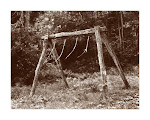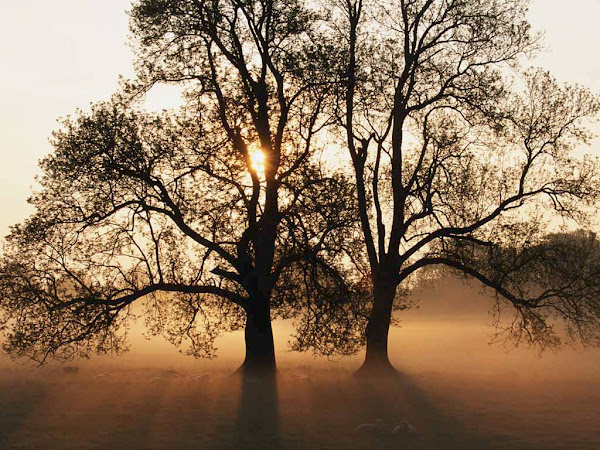The Reduction & Domestication of God
Blessed are they that mourn for they shall be comforted.
Matthew 5:4
I am called to be sad, confused, and disenchanted. Why? The times demand it. The epoch in which I live is experiencing much chaos and bewilderment. This deep sensation of uncertainty is not merely a passing condition of the soul based on a self ordained distancing from God but an attentiveness to our age. Lord, help my unbelief….
My assertions that God is easily accessible, discernable, and approachable quickly disclose my own audacity. As the Orthodox theologian, John of Damascus wrote, “God does not belong to the class of existing things, not that God has not existence but that God is above all existing things, no even above existence itself.”
The assuredness of the past is gone. Those preceding dispositions now speak more of self-belief and self-reliance than faith as all our foundations of knowing are up for grabs. To ignore the seeming domestication of God, His apparent departure from our awareness, the daily skirmishes between faiths and inner battles for power of those leading these various religious camps, makes public the inner barrenness of today’s supposed spiritual practitioners. The caustic banter of the day regarding faith & spirituality belies our glowing claims of piety and points to our overconfidence masquerading as faith. As Heidegger said, “We are in-between gods.”
Ironically, it is the very words about God and His nature that reveal our barrenness. We have reduced God to a text. We have diminished the miracle of faith to mere hermeneutics, creed, liturgy and a three point presentation as Peter Rollins says. Rollins goes on to say, “ The Word, if it exists at all, if "existence" is even the right word to describe its mode of dwelling, is not then the patch of meaning that covers over the wound of our unknowing but rather is that which causes the wound itself.” We cry out for a word, a voice in the wilderness and when we encounter this presence deny the very rupture in our beings that lead us to this event and encounter. We babble on and on about the inexpressible. In our attempt to bring our own inner world at one with itself we assault God’s revealing and systematize the text casting the very utterances of God out of our consciousness leaving us with nothing but the letter of the law. We then feast night and day on this dry & lifeless manuscript hoping for God to indwell a copy of Himself.
For believers, this assessment may sound dark and foreboding if not defeatist and full of unbelief. This is not the intention of this blog. In fact, my intentions, if I am in touch with them on some level, are to make sure I am here now. I want to make sure I do not nostalgically re-present time as if I could bring the former days into the now through wistfulness and longing. I do not want to offer up a picture of God, bloated and assured with His own being but a deity in tears, hidden from Himself, face down in the garden in prayer. This is God being disenfranchised by God. This is God embracing the real condition of humankind at this moment. This is Jesus.
Blessed are those that mourn. It is this overwhelming sense of loss, helplessness, and despair that Robert A. Guelich says expresses the grief of Jesus’ followers. Richard Rohr adds that this notion reveals clearly those who have entered into solidarity with the pain of the world. This is the incarnation. When the world is as it is, how else would Jesus’ followers be? We live in a world where even believers must admit the apparent absence of God. As Heidegger asserted many decades before, "the world of the Christian God has lost its effective force in history.” Christendom is dead.
There is a deeply personal and previously concealed disclosure to this observance. In fact, my recognition of this condition in the world begins within me. Much of my personal faith walk to date has been an avoidance of my own condition as well as the world’s. I was looking for an antidote that would immunize me to all the drama and pain of this world. I spent much of my adult life looking for this potion presuming my search was for truth. In fact, I was looking for a magic elixir that would get me high and keep me above the fray of life. I was looking for that supernatural buzz that quieted all the beasts and allowed me to offer my doctrinal and theological conclusions as ultimate answers instead of my own body. I honored the idea of the cross and yet denied its reality in my own life. I believed in Christ. I was not a follower after Him and His life.
I now see much of this search as a need to escape the real world. Rather than walk as my Savoir into the mysterious caldron of suffering and madness, I took the road most traveled, ate fruit from the lower branches, and kept my circle only to those who heartily agreed with all my speculations on the cosmos. I made the Church the Kingdom. The busyness of religion was my vocation. There was no need for a supernatural God breaking into my world. I had captured the essence of the message and was fine tuning its dissemination and calling it love. I had created my own cultural and spiritual monastery. I had successfully cloistered myself inside a bubble of denial that became, in the end, my own demise. For the degree to which I denied the world without was the same degree to which I denied the world within. But there is no escaping my own pain, and my complicity in the pain of the world. I am now tragically aware of my collusion with bigotry, poverty, sexism, phobias on countless marginalized peoples, and the daily blindness that comes with my inordinate desire for things. This admission is not a self flagellation but an emptying of my spiritual pride. How could I truly love when my presumptions of its presence manifest themselves in convincing arguments as to who was ultimately disserving?
For me to more fully embrace this tension is to admit to others that which I most want them to ignore in me. To allow others to speak into my arrogance, my selfishness, my glib responses to extreme suffering is to prepare myself for a deeper wonder. I am being formed into the New Adam. I do not simply allow this. It is happening to me sovereignly. I must indeed place myself in a position of possible transformation but to regard this deep conversion of the heart as something to which I requested or sought would be a great exaggeration and untruth. No one walks towards the cross without tremendous misgivings, great doubt, and immense trepidation. The cross appears. It is not something we seek. This apprehension is due to the nature of the encounter. Only a God of love would allow His most loved creation to be offered up to chaos. Only a God whose affections were tragically tied to His Son and the created world would consent to this torturous aching. We will not know this God until we step into this part of His heart.
I am daily becoming aware of how tight fisted I am with the blessings of grace. My calculations as to who is discerning, who is in a position to appreciate the truth and obey accordingly, is just not the way the Savior encounters me nor calls me to be. I am consistently smaller than my calling. I avoid the truth countless times and return to what brings me personal comfort. Only when I am willing to sit for a brief period in my own inner discord, do I begin to feel the real hunger of my heart
I was raised to believe that this transformation came through study, prayer, and obedience. There is truth in those practices. In fact, there is enough truth within those practices and postures to last a lifetime. I now thank God my own sense of inner chaos forced me out of my private contradictions to see the world as it really is. I am living in a time of great change and turmoil. Undoubtedly, any historian worth their salt would point to countless facts that could paint any and all times as those of great turmoil, but indeed, the current age is one of seeming collapse and great disenchantment.
I have remarked in previous writings as to the impact of the repression of beauty. I would include in that assertion the accompanying inner qualities of wonder and awe. In fact, for Christians much of our struggle is to avoid regarding the presence and immanence of God as comprehensible, easily recognizable and intellectually obvious. Quite the contrary. Until we dwell in the concealment of God, the sorrow of this world, and the seeming absence of a God who should be manifest in power and might, will we begin to contemplate our current estate.
Many of my friends are currently struggling to feel and witness God actively moving in their lives. Although this most recent writing was about my own search (the blog), I do often think about the current disquiet of entire communities who are experiencing great loss and suffering. From those in Palestine to Wall Street, great suffering is come upon this world and we cannot deny its presence and power. As we pursue answers to the misery and affliction of so many we wonder why and how all this can be taking place in a world where God is. Where is He? We discover that He leaves us seemingly strung out in the middle of the cosmos with little to go on. I am beginning to think that this indeed the Zeitgeist of our times and that unless and until we sit in this seemingly emptied space, we will not discover the God who is there. This is a place of contemplative wonderment and awe.
Monday, January 12, 2009
Subscribe to:
Post Comments (Atom)




1 comment:
Incredibly thought provoking! And I resonate so with everything you are saying. I see some very familiar authors on your favorite books list! :-)
Post a Comment